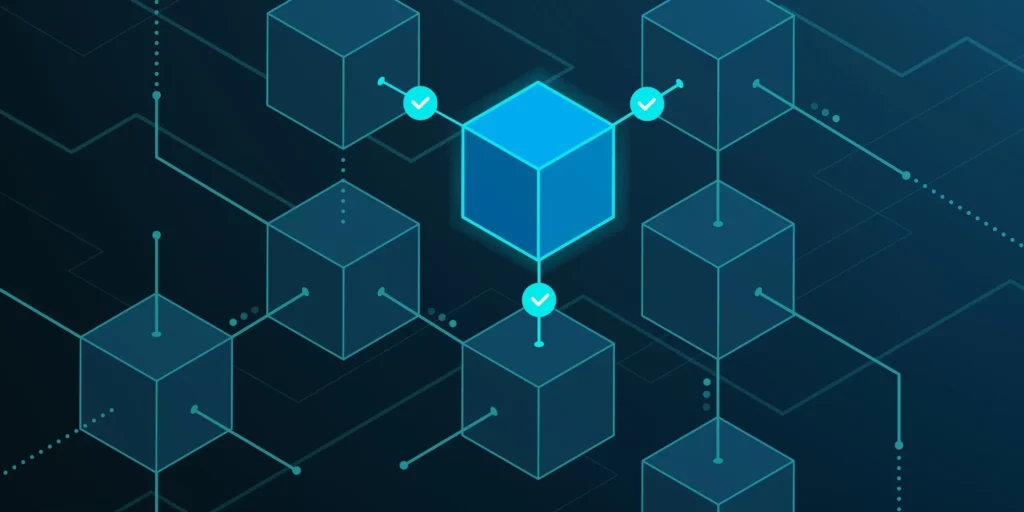Blockchain
Blockchain is a type of Distributed Ledger Technology (DLT) which bundles digital records into a data container structure known as blocks. These blocks are then joined to the end of a chain of blocks chronologically. Each additional block then strengthens the previous block and therefore enhances the entire blockchain. This ensures data is un-touchable and secure.

Interaction between Artificial Intelligence and Blockchain
With the recent expansion of both areas of technology, it has been made evident that the interaction between AI and blockchain technology holds significant opportunities for future development.
Whilst Artificial Intelligence focuses on the creation of machine learning to produce human-like interactions, Blockchain centres around the safe, secure control of data. The combination of these two technologies can have a powerful effect on businesses in cybersecurity, financial services and supply chain management.
Blockchain holds the ability to address key challenges within AI and enhance its capabilities through providing safety, transparency and trust.
Here some ways Blockchain can enhance AI systems:
1. Enhancing Transparency:
AI often operates as “Black-Box” which makes it difficult to understand how AI systems reach their decisions. Blockchain can be used to create immutable logs of AI’s data sources to ensure we can trace AI’s development and actions.
2. Ensuring Data Integrity:
AI systems heavily rely on data to reach their decisions. This data can be tampered with which could lead to biases and inaccurate results. Blockchain can be used to store data on a decentralised ledger to ensure authenticity and prevent tampering.
3. Improving AI Security:
AI systems can be vulnerable to hacking and modifications. Blockchain can be used to provide security through decentralizing data storage and logging changes immutably. This means that only authorised changes are permitted.
4. Enforcing rules with Smart Contracts:
Enforcing contracts between AI systems can be complex. Blockchain can use smart contracts to autonomise rule enforcement and autonomously execute agreements.